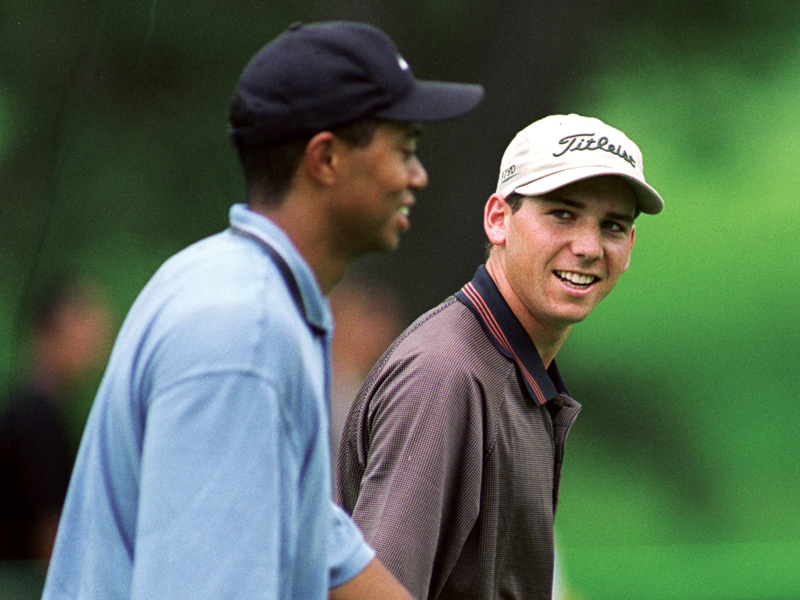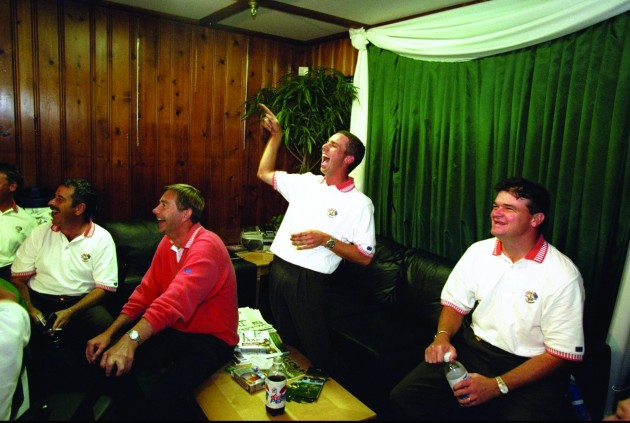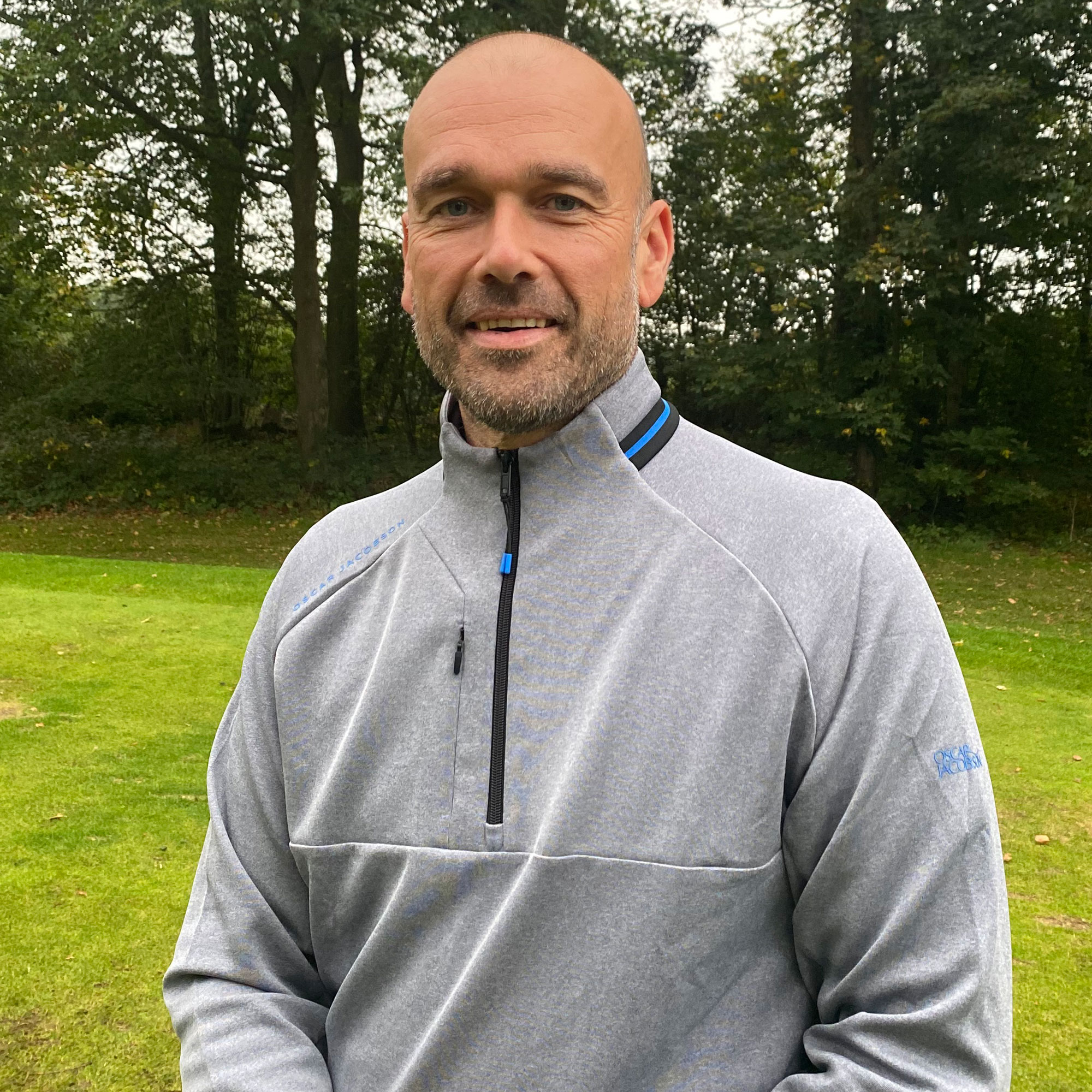Sergio Garcia's 1999 Breakthrough Year
Alex Narey documents the early rise of Sergio Garcia after the Spanish teenager took the golfing world by storm in 1999


Subscribe to the Golf Monthly newsletter to stay up to date with all the latest tour news, equipment news, reviews, head-to-heads and buyer’s guides from our team of experienced experts.
You are now subscribed
Your newsletter sign-up was successful
Want to add more newsletters?

Delivered daily
Daily Newsletter
Sign up for all the latest tour news, gear reviews, head-to-heads and buyer’s guides plus features, tips from our top 50 coaches and rules advice from our expert team.

Once a week
Kick Point
Sign up to our free Kick Point newsletter, filled with the latest gear reviews and expert advice as well as the best deals we spot each week.

Once a week
Women's Golf Edit
Sign up to our free newsletter, filled with news, features, tips and best buys surrounding the world of women’s golf. If you’re a female golfer, you won’t want to miss out!
Two years after Tiger Woods had rocked the world at the US Masters in 1997, the game witnessed the birth of a new teenage titan in Sergio Garcia...
Sunday, April 25, 1999, and the post-tournament interviews are in full flow at the Spanish Open. Sweden’s Jarmo Sandelin has taken the title. But the victor is not the name on everyone’s lips.
Languishing back in a tie for 25th place is the 19-year-old local boy who has just completed his professional debut on the European Tour. Even in the lower ranks of mediocrity, Sergio ‘El Nino’ Garcia always has been box office.
Throughout the final season of the 20th Century, the charismatic Spaniard seemed always to be in the news. A mercurial bundle of flair and energy, Garcia was the teenager who broke records and smashed through barriers as the European game slowly woke up to a talent who could rival the force of Tiger Woods.
From his maiden tournament win at the Irish Open to his thunderous play at the Ryder Cup in Brookline, Garcia was the player everybody wanted to watch. Rising from 399th in the world to the towering ranks of 12th place, the boy for all occasions had arrived.
On the surface, little has changed since. Garcia’s game remains sublime. And despite the fits of pique that scatter his brilliance and the Major void that waits to be filled, there can be little doubt that the golf world has become a better place with Sergio Garcia in it. ‘He is the one player I really love to watch.” said his hero, Seve Ballesteros. Some statement. Some player…
COMING THROUGH
Subscribe to the Golf Monthly newsletter to stay up to date with all the latest tour news, equipment news, reviews, head-to-heads and buyer’s guides from our team of experienced experts.
The records suggested something special could happen. There was the club championship victory at 12 and the 21 wins as an amateur. There was the Catalonian Open of 1997, a professional event that the-then 17-year-old had won in such impressive fashion, and there were the 12 cuts made from 18 outings in the pro ranks before he had signed his life away to the production line of the Tour.
But above all, there was the charisma; a personality brimming with confidence that the golfing world had been crying out for since the slow demise of Seve Ballesteros in the first half of the decade.
Mark James: "He was like a young ‘pup’ of Seve."
THE BULLFIGHT
The Spring of 1999 proved to be a happy time for golfing fans from Spain. Not only was Garcia the only non-professional to make the cut at the US Masters, but the nation also celebrated the success at Augusta National of the youngster’s popular mentor, with Jose Maria Olazabal winning his second Green Jacket. Comparisons were soon being made between both players, as well as the elder statesman of the triumvirate, Ballesteros. But there was a startling difference: Garcia’s game wasn’t simply about moments of short-game magic; his long game was recognised as perhaps the best in the amateur ranks.
Victor Garcia: Sergio’s hands have always been naturally fast. From an early age he was able to move the ball both ways – with a draw for extra distance.
TO THE EMERALD ISLE Following his professional debut in Barcelona, Garcia travelled to the Byron Nelson Classic on the PGA Tour, where he shot a first-round 62 on the way to a third-place finish. Sensing that a maiden tour win loomed, his game improved steadily with a tie for 19th at the Volvo PGA Championship. Garcia then became the fourth youngest winner on the European Tour at just 19 years and 176 days at the Irish Open in July. Rounds of 69, 68, 67 and 64 left the teenager with a three-shot victory over Angel Cabrera. It was his sixth tournament as a professional.
Sergio Garcia: "They always say that the first win is the most difficult, so let’s see if I can continue now."
UP FOR THE CUP Now the long-term season talk centred on the Spaniard’s qualification for Mark James’ European team at the Ryder Cup in September. After Ireland, Garcia sat in 18th position on the Order of Merit. Question marks lingered around the youngster’s temperament and a shoe-kicking spat at Wentworth later in the season seeded further doubts; and he was a kid – what chance would he have in the cauldron of the game’s most physical form of man-to-man combat? Still, there seemed little doubt among the game’s heavyweights about his inclusion…
Ben Crenshaw: "A kid like this is extra special. There is no question in my mind that he will be in the team."
Colin Montgomerie: "Passion. That’s the word for him. He’s out of the same mould as Seve and Ollie. Just stick him out with Ollie and let him run."
Sergio Garcia: "To make the team on points I think I have to win one more tournament. If Mark James thinks I am good enough, I would love to play. There is a long time to go until September, so we’ll see."
CARNOUSTIE CARNAGE The surge continued at the Scottish Open at Loch Lomond. Another opening-round 62 threw Garcia into early contention, and although he tailed off, eventually finishing second to Montgomerie, hopes were high for Carnoustie and the Open Championship a week later. It would be ‘El Nino’s’ first taste of a Major as a professional.
But the young Spaniard was bludgeoned into submission by the hazardous conditions and fierce set-up of the brutal links – famously dubbed ‘Car-nasty’. “If I was a spectator,” said Nick Price of the course, “I would ask for my money back.”
The Independent, September 1999: [For everything that he has achieved this season] "Garcia is probably still best known for shooting 89 and 83 on the first two days of the Open Championship, missing the halfway cut at 30-over-par."

CUTTING IT ROUGH
After making a triple bogey on the first hole, a volatile and fragile Garcia never recovered. From the tee he consistently found the deep clag – and a series of tempestuous attacks followed. “I started badly and every good shot was turning into a bad one because of the kicks. It was just impossible to enjoy. You have to be lucky sometimes, but that didn’t happen to me this week and it was getting worse and worse.”
Sergio Garcia: "It is done. I don’t want to hear anymore about it. I won’t watch the rest of it on TV."
MERCY AT MEDINAH
Garcia dusted the disappointment off in immaculate fashion as the season’s fourth and final Major arrived. Heading to the 1999 USPGA, his inclusion in James’ side for Brookline seemed all but assured.
But the Medinah III track in Illinois, at 7,401 yards and the longest in Major Championship history at the time, would surely ask more questions of a mind that had crumbled so easily weeks before. Unlike Carnoustie, Garcia found a healthy start with a Thursday 66. Despite a Friday 73 – which included 33 putts – his Saturday 68 was enough to set up a final-day duel with Tiger Woods, where he would lose by a single stroke.
Sports Illustrated: "Woods overpowered the longest course in Major Championship history, and then, in a giddy, sloppy, riveting duel for the final nine holes, he outlasted Spain’s teen dream, Sergio Garcia, who didn’t quite sneak off with the tournament, but who did for a while steal the show.
Jerry Higginbotham – Garcia’s caddie: "He came up to me on the 18th and said he didn’t care if he won or not. That this was “the most fun he had ever had on a golf course.”

THE BULLY OF BROOKLINE
The highlight of his Medinah showpiece came on the par-4 16th, when Garcia treated the galleries to a slashing 6-iron banana shot from behind a tree. This was followed by a rather unnecessary but playful hop-and-skip up the fairway as Garcia chased his ball to the green.
It was this kind of exuberance that may have led to some sections of the Brookline crowd developing a distaste for the youngster as he fist-pumped the Massachusetts air during his Ryder Cup debut.
The youngest player to have played in the Cup, he won 3.5pts from his fourballs and foursome matches with Jesper Parnevik before losing his Sunday singles against Jim Furyk. It was to be the beginning of one of the Cup’s great romances.
Colin Montgomerie: "He is an inspiration to us. To do what he’s done since he turned pro after the Masters is incredible. It’s possibly the best amateur-to-pro transformation there has ever been."

Alex began his journalism career in regional newspapers in 2001 and moved to the Press Association four years later. He spent three years working at Dennis Publishing before first joining Golf Monthly, where he was on the staff from 2008 to 2015 as the brand's managing editor, overseeing the day-to-day running of our award-winning magazine while also contributing across various digital platforms. A specialist in news and feature content, he has interviewed many of the world's top golfers and returns to Golf Monthly after a three-year stint working on the Daily Telegraph's sports desk. His current role is diverse as he undertakes a number of duties, from managing creative solutions campaigns in both digital and print to writing long-form features for the magazine. Alex has enjoyed a life-long passion for golf and currently plays to a handicap of 13 at Tylney Park Golf Club in Hampshire.